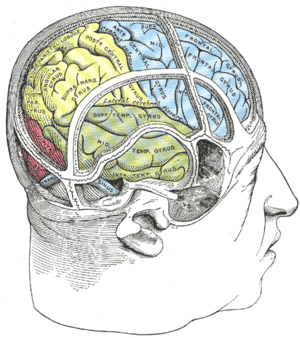With the aid of brain scans scientists have shown clear cognitive differences in way people with dyslexia process information compared with non-dyslexics.
 Writing in this week's Current Biology, Maastricht University researcher Vera Blau and her colleagues describe how they scanned 26 volunteers, half of whom were dyslexic. The study participants were presented with letters, speech sounds or combinations of the two that were either matching (congruous) or non-matching (incongruous); for example, in a non-congruous pairing, subjects might see the letter A and yet hear the sound "B". It's this integration of sounds with basic written units of language that dyslexics find difficult.
Writing in this week's Current Biology, Maastricht University researcher Vera Blau and her colleagues describe how they scanned 26 volunteers, half of whom were dyslexic. The study participants were presented with letters, speech sounds or combinations of the two that were either matching (congruous) or non-matching (incongruous); for example, in a non-congruous pairing, subjects might see the letter A and yet hear the sound "B". It's this integration of sounds with basic written units of language that dyslexics find difficult.
What the team were looking for were differences in the brain activity patterns between the dyslexic and non-dyslexic participants since this would indicate which brain regions might be responsible for the deficit. Quite quickly they struck gold. Normal readers showed stronger activation in a part of the brain called the superior temporal gyrus whenever congruent word-sound combinations were presented, but no such bias was seen amongst the dyslexics.
This, say the team, suggests that in dyslexics there is a deficit in letter-speech integration and they point to this as a fundamental mechanism that might distinguish strong from poor readers.
"The results show that the way their [dyslexics] brain integrates letters and speech sounds is very different from normal readers. It's quite astonishing," Blau said.
The team are now extending their studies to children that are learning to read in order to identify whether the difficulty in integrating letters and speech sounds begins in early school years and whether it comes before or after deficits in processing the sounds of language. This, together with the present results, could be used to track the benefits of interventions designed to help dyslexics.
"Our findings may offer a way to validate intervention strategies and narrow down the best training approaches," said Blau.










Comments
Add a comment